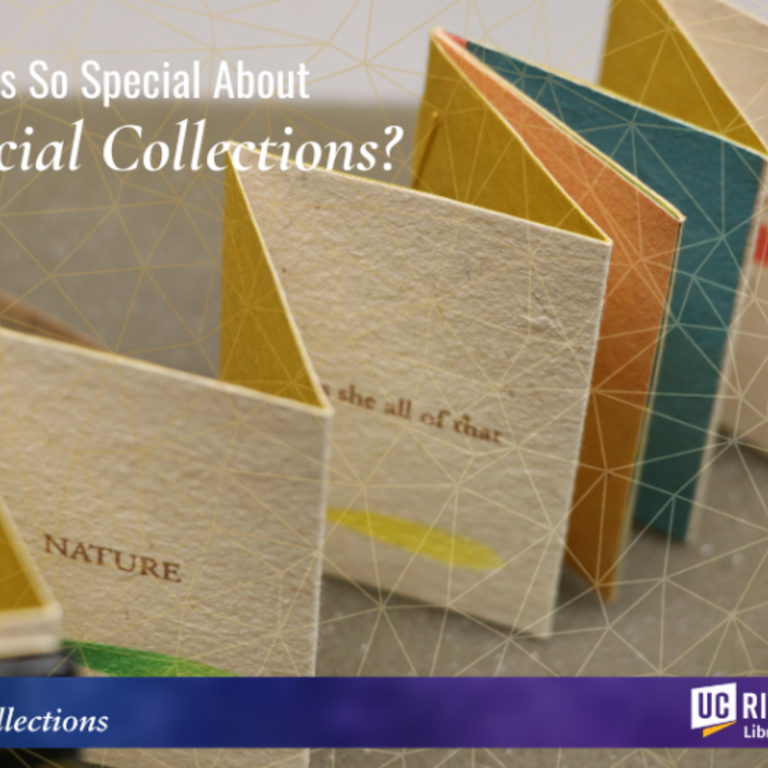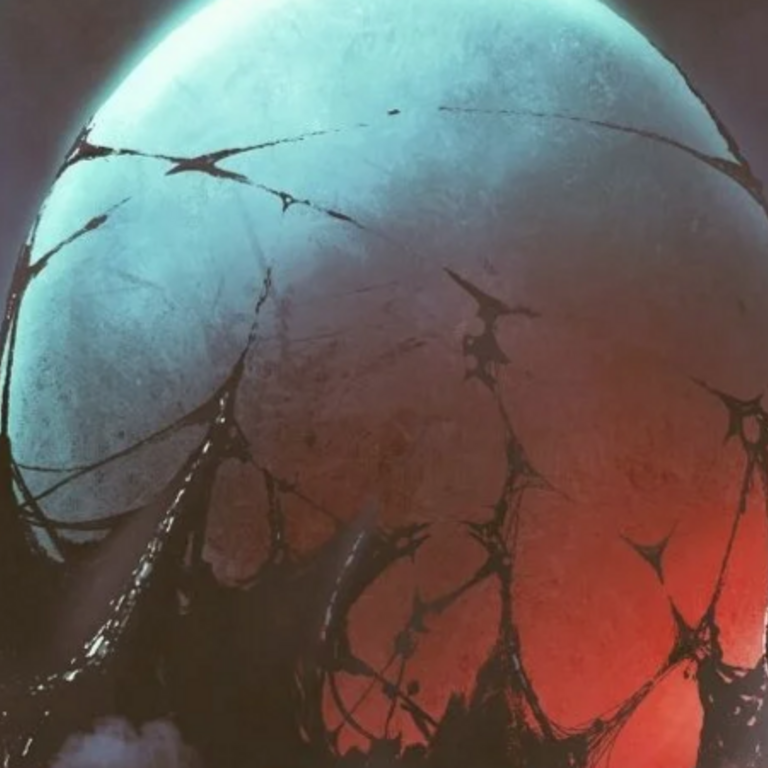Special Collections & University Archives Collection Development Strategies
As described on our Collections page, the Special Collections & University Archives department of the UCR Library has several large collecting areas: Special Collections, University Archives, the Eaton Collection of Science Fiction and Fantasy, and the Water Resources Collections and Archives. Each of these four areas are separately defined collections with their own research and instructional strengths, topics and materials of historical collecting, and areas targeted for future growth and development.
-
Collecting Strategies
Collecting Strategies
SCUA’s collection development is aligned with the overall scholarship, mission, and vision of UCR and UCR Library. As one of the largest repositories in the Inland Empire, we also recognize our responsibility to preserve the voices and histories of local communities. Inspired by the Statement on Inclusion and Equity in Special Collections, Archives, and Distinctive Collections in the University of California Libraries, written by the Heads of Special Collections for the University of California Libraries, we are committed to increasing the representation and participation of systemically and historically marginalized groups across all areas of SCUA, including collection development. Quoting directly from the statement, we advocate for the following strategies to form the foundation of collection development in Special Collections:
“Ethical stewardship, collection management, and preservation that builds trust and sustains community engagement” - when possible, we support and encourage collaboration with donors and the creators of the materials we collect, including through public-facing activities such as exhibits, programming, social media, etc. For that reason, donations and purchases that align with SCUA outreach, teaching, and community engagement initiatives, particularly for underrepresented and/or local communities, may be given preference in acquisition.
“Critical review of collection development strategies that weigh historical strengths against intentional and proactive shifts” – in this policy, we review our collections to determine our ongoing and historic strengths. We advocate for the continuation of some areas that remain important research and community priorities, while also making recommendations for areas to deemphasize in order to make space for new goals that better reflect user and community needs and interests.
- “Sustained resources for regional, local, and user-driven acquisition of print-only and ephemeral materials documenting diasporic and at-risk histories” – in a world with increasing demand for digital or digitized material, we assert the value and significance of print-only and ephemeral materials. Preference is given to print materials that are handmade or from small press, including artist books, rare books, zines, cartoneras, and other works made in limited runs and/or out of print, especially local and regional works.
Many factors impact the evaluation of materials for acquisition. We actively seek materials in the collection areas outlined in this policy and in our preferred formats. Additional preference may be given to materials that relate to our inclusive collecting strategies outlined above. We also look to intangible, yet crucial, elements such as faculty research interests, teaching priorities across the library, campus strategic plans, and cultural/social community shifts to guide our selection.
We recognize that collection development for Special Collections is not the purview of a single curator, but rather a shared responsibility across multiple stakeholders in the library. For example, collecting for instruction necessitates seeking broader ranges and variety of materials. We collaborate with departments such as Teaching & Learning and faculty, as needed, to develop strong collections for instruction.
We aim to make this collection development policy inclusive and cohesive of our mission, goals, and strategies, while also acknowledging that collection development is an iterative process that must continuously evolve as our community evolves. We recognize this will be an ongoing practice and regular reviews of this collection development policy should occur on a five-year basis (next review in 2029) to ensure it meets the needs of the scholarly and local community.
Please visit the following links to explore the Collection Development Strategies for each of these collecting areas:

